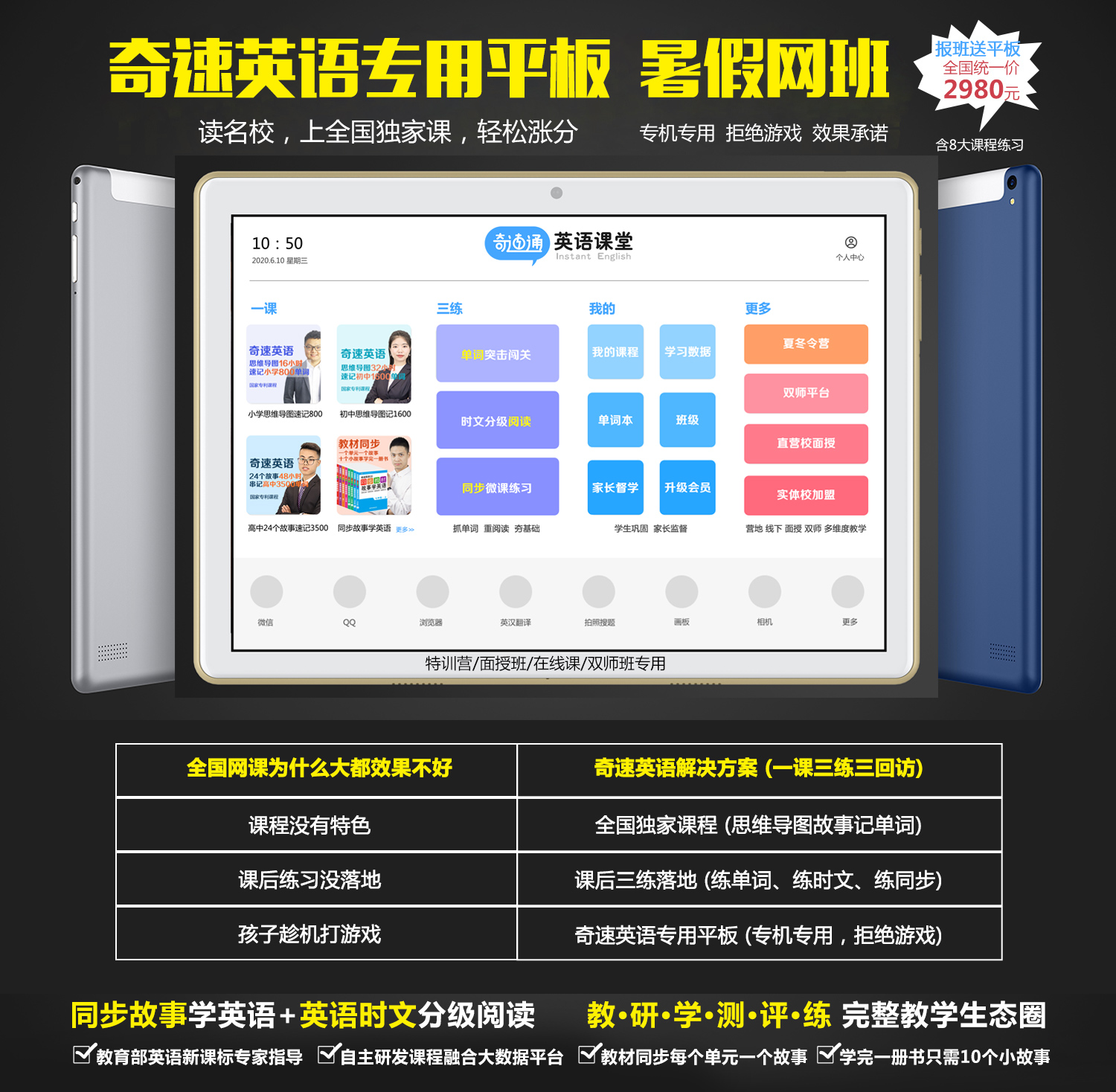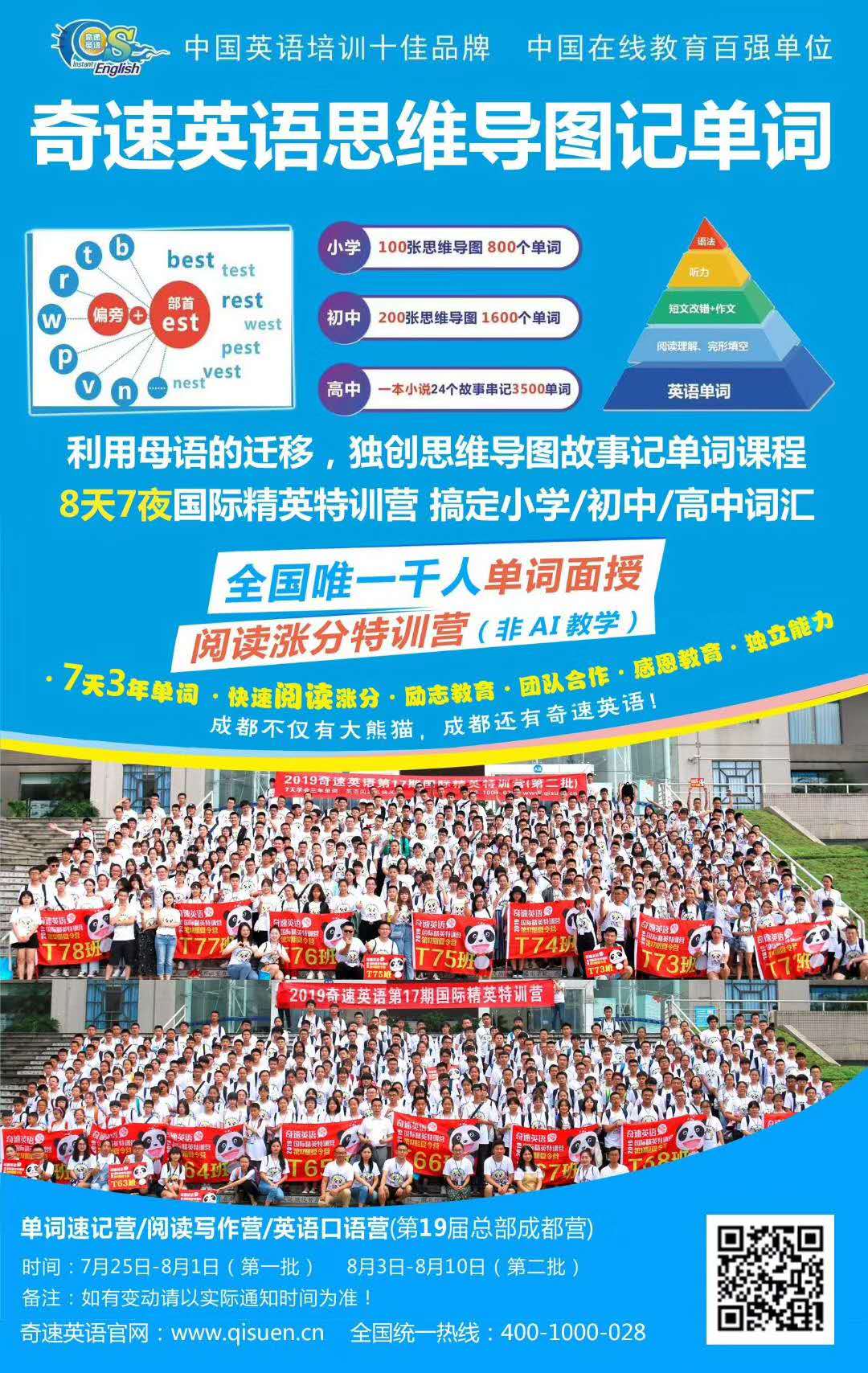2020年7月浙江高考英语听力试题及录音原文
作者:未知 时间:2020-07-13 阅读:( )
第一部分 听力 (共两节,满分30分)
做题时,先将答案标在试卷上。录音内容结束后,你将有两分钟的时间将试卷上的答案转涂到答题卡上。
第一节 (共5小题;每小题1.5分,满分7.5分)
听下面5段对话。每段对话后有一个小题,从题中所给的A、B、C三个选项中选出最佳选项,并标在试卷的相应位置。听完每段对话后,你都有10秒钟的时间来回答有关小题和阅读下一小题。每段对话仅读一遍。
例:How much is the shirt?
A. £19.15. B. £9.18. C. £9.15.
答案是C。
1. What will the speakers do tonight?
A. Visit Mary.
B. Go out of town.
C. Host a dinner.
2. How does the woman go to work this week?
A. By car.
B. By bike.
C. On foot.
3. What time does Dave’s meeting start?
A. At 8:30.
B. At 9:00.
C. At 10:00.
4. What is Helen going to do?
A. Buy some books.
B. Study in the library.
C. Attend a history class.
5. What is the woman’s feeling now?
A. Relief.
B. Regret.
C. Embarrassment.
第二节(共15小题;每小题1.5分,满分22.5分)
听下面5段对话或独白。每段对话或独白后有几个小题,从题中所给的A、B、C三个选项中选出最佳选项,并标在试卷的相应位置。听每段对话或独白前,你将有时间阅读各个小题,每小题5秒钟;听完后,各小题将给出5秒钟的作答时间。每段对话或独白读两遍。
听第6段材料,回答第6、7题。
6. What is Tom busy doing?
A. Raising money.
B. Writing a lab report.
C. Giving classes to children.
7. Who might be able to help Tom this week?
A. Mike.
B. Cathy.
C. Jane.
听第7段材料,回答第8至10题。
8. Why is Jack leaving early?
A. To avoid getting stuck in traffic.
B. To enjoy the scenery on the way.
C. To buy some gifts for his family.
9. What does Judy often do at the railway station?
A. Read books.
B. Call some friends.
C. Look around the shops.
10. What are the speakers mainly talking about?
A. What to do next year.
B. Where to go for vacations.
C. How to pass the waiting time.
听第8段材料,回答第11至13题。
11. Why does Bill look troubled?
A. He is short of money.
B. He has made a big mistake.
C. He is facing a tough choice.
12. What is Bill now?
A. A college student.
B. An army officer.
C. A computer engineer.
13. What does the woman seem to suggest Bill do?
A. Learn to repair cars.
B. Decline the job offer.
C. Ask his uncle for advice.
听第9段材料,回答第14至16题。
14. What is the woman recommending to the man?
A. A writer.
B. A club.
C. A course.
15. What is the woman reading now?
A. The Beautiful Mind.
B. The Great Gatsby.
C. The Kite Runner.
16. How much time does the man have to read the book?
A. Two weeks.
B. Three weeks.
C. Four weeks.
听第10段材料,回答第17至20题。
17. What is the speaker doing?
A. Reporting a study.
B. Chairing a meeting.
C. Teaching a class.
18. What should you pay most attention to when taking notes?
A. Listening.
B. Reading.
C. Writing.
19. What is an advantage of using symbols in note-taking?
A. It keeps information secret.
B. It leaves space for future use.
C. It makes key words noticeable.
20. What will the speaker do next?
A. Ask a few questions.
B. Show some notes.
C. Make a summary.
参考答案
1
答案速查
1-5 CABBA 6-10 ABACC
11-15 CABBC 16-20 ACACB
2
录音原文
(Text 1)
M: Who will join us for dinner tonight?
W: Bob and Candy. I also invited Mary, but she is out of town.
M: What a pity! I was hoping she would come.
(Text 2)
M: If I were you, I’d just walk to work. It would take you about 20 minutes. Riding a bike is a good choice, too.
W: I agree. But this week my husband is away on business, so I have to drive my kids to school before I go to work. I’m pressed for time, you know.
(Text 3)
W: It’s 8:30, Dave, and you’re going to be late for the meeting.
M: Oh, my! I just have half an hour left. I can’t believe I slept for 10 hours.
(Text 4)
M: Hi, Helen. Where are you off to?
W: To the library. I’ve got a history paper due next week, and need to do some reading.
(Text 5)
W: Thank goodness! You're still here.
M: What’s up?
W: I need your signature for this document. It’s urgent.
(Text 6)
W: Are you all alone, Tom? Why not ask Mike to help you collect money for the Children’s Centre?
M: Well, he’s working on his lab report. Could you come?
W: I’d love to, but I won’t be available until next week. I think Cathy will have some free time this week. Do you want me to pass on a message?
M: That’d be nice. Thanks, Jane.
(Text 7)
W: Are you leaving for the railway station now, Jack? It’s so early.
M: Just avoiding the rush hour traffic. I don’t want to be late.
W: So you have to wait for about two hours? I don’t think there’s scenery to look at.
M: Don’t worry! I’ll take a book with me.
W: It’s too noisy to read in the railway station. I would usually look around the shops while waiting for the train.
M: But I’ve already got all the gifts for my parents and sisters. I don’t need to buy anything. If I really can’t focus on the book, I may phone up some friends I haven’t talked to in a while.
W: That’s a nice idea. Betty told me last time that she often spent the waiting time writing a to-do list so that she’d not miss anything in the days to come.
M: That’s an awesome idea. I’ll surely do that. Thank you, Judy. See you next year.
W: Bye!
(Text 8)
W: Hi, Bill. You look troubled. What’s the matter?
M: Hi, Grace. I have a big decision to make. My uncle offered me a job as the lead engineer at his service station, and with good pay.
W: That’s wonderful, but are you going to quit college?
M: That’s exactly the problem. One side of me says, “Oh, go ahead! You can go back to college anytime. What job could you get after college that would pay you $15 an hour? That’s $30,000 a year!”
W: And then?
M: And then, the other side says, “Hold it, not so fast! For all those years you were in the army, you planned to go to college so that you would have many job possibilities to choose from. You’ve planned your whole life around going to college. And now…”
W: I can see it. It’s true that with your experience in the army, you could do excellent work repairing cars if you accept the job. But you are doing very well now. Just think of the future. You will get better jobs.
(Text 9)
W: Hey, John. Can I talk to you for a minute?
M: Sure, what’s up?
W: I wanted to let you know about a book club I joined a few months ago. I know you do a lot of reading, so I thought you might want to come with me next month.
M: Oh, that sounds like fun. When does the group meet?
W: Usually the last Saturday of the month at 7:30 in the evening. Is that too late for you?
M: No, I think that’s okay. What do you talk about in the group?
W: Well, every month we choose a new book. And then during the next meeting, we discuss it.
M: What books have you read?
W: Quite a lot. Recently we have read The Beautiful Mind and The Great Gatsby. Now we are reading The Kite Runner.
M: The Kite Runner ? I’ve heard that’s a good book. What’s it about?
W: It’s about a boy who grows up in Afghanistan during the 1980s.
M: That sounds interesting. I’d love to come.
W: Great! The next meeting will be held in two weeks, so you still have time to read the book.
(Text 10)
W: Today, let’s begin with note-taking techniques. Note-taking is an important skill not only for taking classes, but also for doing your job in the future. I’d like to draw your attention to certain points about taking notes. First, remember that note-taking should be 75% listening and only 25% writing, so don’t try to write down every single word the teacher says. Ignore what is unimportant and write in phrases, not complete sentences. Second, leave spaces and lines between main ideas. You may want to add some information later. I find that some of you are very good at making use of color, mapping web, and symbols such as arrows, circles and boxes. I highly recommend these tools to all of you, because the use of them makes the outline more easily readable and interesting than the blocks of text. It also makes sure that important words stand out. Here are some examples.
长按识别二维码 咨询夏令营详情
本文整理于网络 版权归原作者所有
如有侵权请联系删除

-

2025江苏、浙江奇速英语冬令营:寒假蜕变计划,英语不再是难题
(113)人喜欢 2024-11-23 -

2025上海、江苏、浙江奇速英语冬令营:趣味英语挑战,寒假英语充电站
(128)人喜欢 2024-11-22 -

2025浙江省杭州市奇速英语冬令营:思维导图速记,寒假英语大飞跃
(176)人喜欢 2024-11-20 -

2025浙江杭州奇速英语冬令营:寒假充电站,英语飞跃新高度
(150)人喜欢 2024-11-19 -

2025浙江杭州英语冬令营:寒假充电站,激发无限潜能
(172)人喜欢 2024-11-18 -

2025浙江省杭州市奇速英语冬令营:思维导图速记,寒假英语大飞跃
(159)人喜欢 2024-11-13 -

2025浙江省杭州市奇速英语冬令营,打造英语小达人
(176)人喜欢 2024-11-09 -

2025浙江省杭州市奇速英语冬令营:寒假高效提分,英语不再是难题
(171)人喜欢 2024-11-08 -

2025浙江省杭州市奇速英语冬令营:寒假充电站,英语飞跃新高度
(178)人喜欢 2024-11-07 -

浙江省杭州市/宁波市/温州市奇速英语2025年冬令营轻松突破单词阅读,小初高学子英语8
(70)人喜欢 2024-11-06

2025广东、广西奇速英语冬令营:寒假蜕变计划,

2025湖北、湖南奇速英语冬令营:寒假蜕变计划,

2025江西、山东奇速英语冬令营:寒假蜕变计划,

南京深圳上海冬令营英语新体验?奇速英语寒假冬

沈阳大连济南冬令营英语新体验?奇速英语寒假冬

上海重庆南京冬令营英语新体验?奇速英语寒假冬

长春南昌北京冬令营英语新体验?奇速英语寒假冬

贵阳石家庄武汉冬令营英语新体验?奇速英语寒假

兰州广州深圳冬令营英语新体验?奇速英语寒假冬

杭州宁波西宁冬令营英语新体验?奇速英语寒假冬

福州厦门昆明冬令营英语新体验?奇速英语寒假冬

奇速英语时文阅读新功能上线

奇速英语冬令营:从兴趣出发,培养英语学习好习

【背诵+默写】学英语的黄金搭档

【高中英语】278句口语练习!

中考英语历年高频熟词生义 (含词性+例句+释义)

2025安徽、福建奇速英语冬令营:寒假蜕变计划,

2025江苏、浙江奇速英语冬令营:寒假蜕变计划,

2025黑龙江、上海奇速英语冬令营:寒假蜕变计划

2025辽宁、吉林奇速英语冬令营:寒假蜕变计划,
